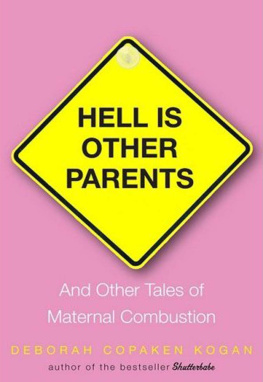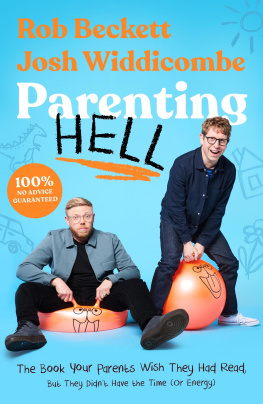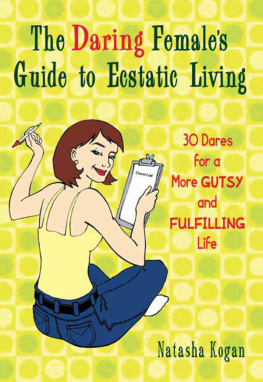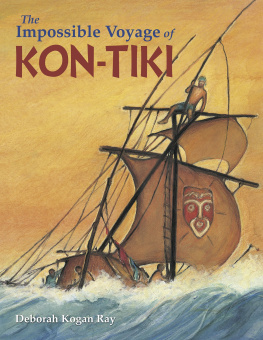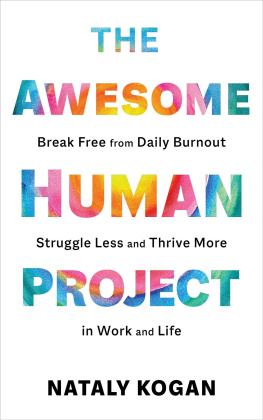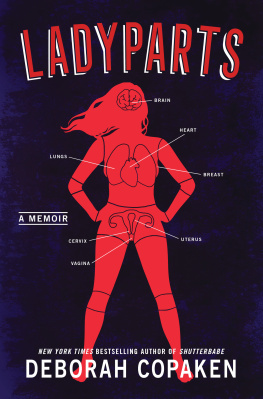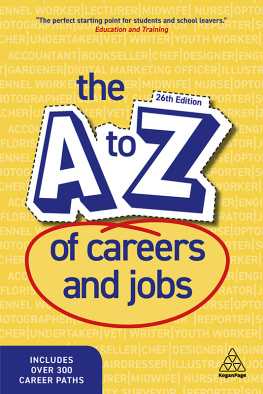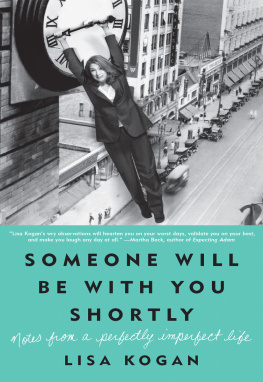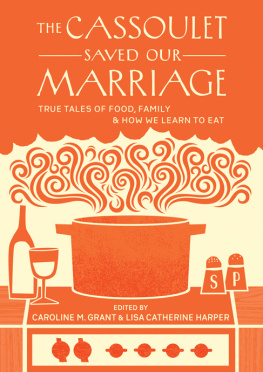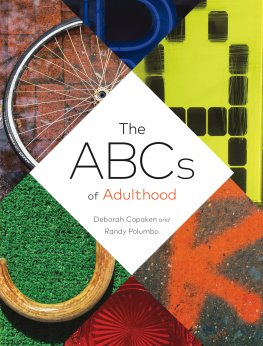Richard D. Copaken
19412008
King of the Mountain
Y oure not going to just leave that tiny girl up there all alone, are you? the stranger asks, his tone grave. Hes pointing an accusatory finger up at my daughter, Sasha, whogiggling and triumphant, her hair aglow with the last rays of the eveninghas just scaled the summit of a gigantic rock. Shell fall.
I smile politely. Im used to unsolicited parental advice by now. No, she wont, I say, careful to keep my eyes on Sasha and on her more cautious older brother, Jacob, whos leaning against the base of the rock, a safe thirty-odd feet below his sister, eating an ice cream sandwich and pondering the mechanics of subtraction. She loves this rock. Knows every crevice. And shes older than she looks.
Sasha is three. But at two foot nine and twenty-three pounds, she is the size of an average one-year-old. Mommy, Jacob, look at me! she yells. Im up so, so high! She gives us a thumbs-up. Her face breaks into a smile. That smile is why we come to this rock. Good for you, Jacob shouts. Were so proud of you! Hes four and a half, and twice her size.
The worried onlooker, whose young boy (I know better than to judge age by size, but lets just say the kids not yet five) has been climbing up and down the rock undeterred, mumbles something under his breath about not wanting to stand by and witness a disaster. Then, with dramatic purpose, he begins to climb up the side of the rock to rescue my daughter.
Excuse me, I say, my voice now brusque. I said shes fine. Im sensitive about these things. Im five foot two on a good day, and Ive spent the better part of my life climbing my own mountains.
But my anger, Im starting to understand, has deeper roots.
My daughter is hardly a pushover. She splutters vengeful Bronx cheers at all who insult her stature. She calls herself the King, she likes to wear sneakers because she says they make her look tough, she dreams of owning a motorcycle, and her favorite activity is sticking her hand in the mouths of large dogs. But in the past year, Ive seen my tiny king punched, kicked, shoved, hit, and slammed over the head with various blunt objects at the hands of her fellow toddlers more times than I can bear to recall. Its aggravating enough to have to defend my much-smaller-than-average daughter against the adults who, upon learning Sashas age, think nothing of saying, Oh, my God, shes so tiny! within her sensitive earshot. Its positively terrifying, however, to realize that because of her size my daughter might require more protection in more circumstances than any mother could ever provide. To accept the fact that there is no defense against human nature.
During my last year of college and for a little while thereafter, I fell victim to a number of random assaults and muggings. A few were quite scary: a couple with guns, another with a knockout blow to the head, others with unwanted tongues shoved deep in the back of my throat. Until I had Sasha, I had always just chalked up these attacks to a mixture of my bad luck, navet, and gender. But now, watching my daughter get picked on just because shes the runt of the group, observing the same old Lord of the Flies scenes blithely reenacted in the eternal petri dish of childhood, it has occurred to me that my own small stature might have played a far bigger role in my assailants choice of preyand the sheer number of attacksthan Id ever thought. I always knew being short was a slight handicap, an annoyance to be overcome. But dangerous? Hows a girl to scale that mountain?
Sasha, to her credit, has learned to fight back. She has perfected the icy stare, the defensive stance, and the bloodcurdling screams that usually send her foes running for their mommies. But these are preschoolers brandishing sticks in a playground. I shudder at the thought of my daughter, fifteen years hence, walking all alone on a darkened street. The man, now halfway up the rock, hears the shift in my tone, understands that Ive finished with social pleasantries and stops his attempt to rescue my daughter. Climbing down, he stares at me, incredulous. Well, if she were my little girl
Shes my little girl, I say. But thanks for your input. You see, sir, beyond keeping her locked inside, which I would never do, or enrolling her in tae kwon do classes, which I might do, there isnt much else I can do to protect my daughter from danger, particularly the dangers that her size entails. Yes, she might lose her footing; she might even fall. But Id much rather that she learn how to right herself than keep her from climbing to the top of her beloved rock, up there so, so high, the only place in her world where shes the biggest thing on the horizon.
I wrote the previous essay in the summer of 2000, when I was still green enough as a parent to believe that the incident described would stand out as a bell curve outlier in the spectrum of parent-to-parent interference.
But the years passed, and the incidents accumulated: the mother who chastised us for using salt; the truck driver who hurled unprintable epithets through his window at me and my then-eight-year-old while we were stopped at a red light, because he felt I shouldnt drive my kid around the city on a scooter; the private school parents who said we were permanently damaging our then-six-year-old by yanking her out of the hothouse and into public school; the former colleague who equated allowing my son to pur sue his dream of becoming a professional actor with child abuse; the father who couldnt abide my little girl having a sleepover with his little boy (Theyre only eight, sure, but you never know); the friend who, staring down at my belly, eight months swollen with child number three, said, Are you sure you really want to have a third? We thought about it, but we ultimately decided it was a bad idea.
Weve chosen to raise our family in Manhattan, on income insufficient to the task, so clearly we are gluttons for punishment. We live, all five of us, in a two-bedroom apartment: my son Ja-cob, now an eighth grader, occupies a five-by-seven-foot closet/ laundry room; my daughter Sasha, a sixth grader, shares her small bedroom with her two-year-old brother, Leo. We traverse sidewalks, every day, choked with strollers and parents and kids, all meandering through the crowds on their way to equally teeming schools and playgrounds and museums and offices, all quick to offer scorn and criticism in the guise of helpful advice, shopworn parables, the strategically raised eyebrow. We stand shoulder to shoulder with one another on buses and subways, trying not to step on our neighbors toes, failing to keep our flailing toddlers from planting kicks in each others groins.
But having spoken with friends whove chosen to raise their cherubs in less expensive, less populous, less blatantly striving cities, it strikes me that my familys experiencesthe daily frictions with other parents, the snap judgments that are made either implicitly with a condescending look or explicitly with a loud barkare not unique to my city. Or to me. Or to my children.
The stories in this book are all, preposterously, true, with the normal caveat that many of the names have been changed to protect the innocent. And the not-so-innocent. And the blatantly guilty.

